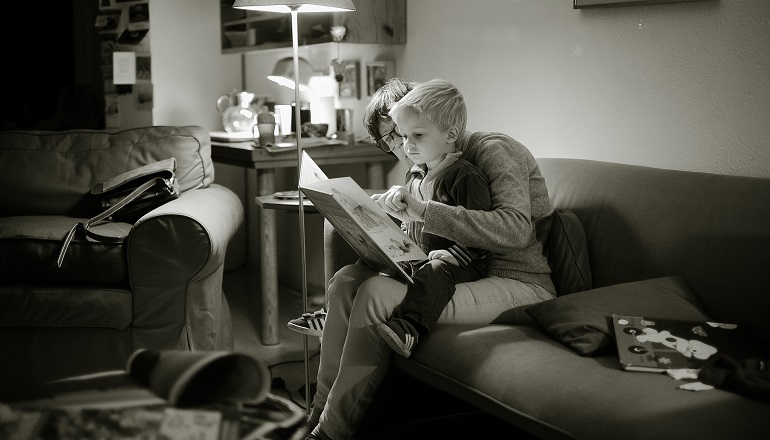By the time children of single adoptive mothers reach school age, they are bound to have been asked the daddy question. When my daughter was in third grade, a classmate demanded, “Where’s your dad?” at the annual Dad’s Doughnut Day. Unruffled, my daughter explained that our friend, Ted, whom we had brought, was like a dad, and went on to enjoy the day.
It wasn’t so easy for my son. My two children, adopted in 1984 and 1997, are 12 years apart. Growing up in the 80s, my son was one of the few children in his class without a dad, and the only child who had a single, adoptive parent.
Keep It Honest
Children between the ages of six and eight often compare themselves to their peers, so it’s natural for them to want to fit in. I had to seek out other single-parent families when my son was growing up. But now, homes with single parents are common.
Despite society’s changing attitudes, children have their own feelings about being raised by a single mother. A friend’s eight-year-old daughter, for instance, often cried herself to sleep because she wanted a daddy so much. On the other hand, my daughter is content with our being on our own. When asked if she wanted a daddy, she replied, “Just on Saturdays.” (Saturday was the day she saw dads having fun with their kids at the park.)
School can be a particularly sensitive area for our children. Thankfully, curricula have changed in the past two decades to include discussions of many kinds of families. When my son was growing up, I found it useful to talk with his teachers at the beginning of the school year about our family, and about how some projects might be difficult for him. When teachers provide alternatives to certain assignments about families, it broadens the learning experience for all students.
However the issue arises, approach the daddy question with an honest and positive attitude that will encourage your child to sort out her own feelings. Let her know you are open to discussion, but don’t push it if she’s not ready.
It’s helpful to give children a vocabulary with which to speak about their family. Talk with them at an early age about the fact that you don’t have a father in your home. Be clear and concise. Children don’t need long-winded explanations. A statement like, “Mom is single, so we don’t have a dad in our home,” is often enough to satisfy them.
Role-play ways he can respond to comments from kids, or even adults, who know little about adoption or single-parent issues. Questions from peers, such as, “Why don’t you have a dad?” or (to you), “What happened to his dad?” can be answered simply. You might say something like, “Juan was born in El Salvador, and his birth mother and birth father live there. I adopted him, and, because I’m single, we don’t have a dad in our home.” Helping your child field questions like these can ease his concerns about awkward situations.



